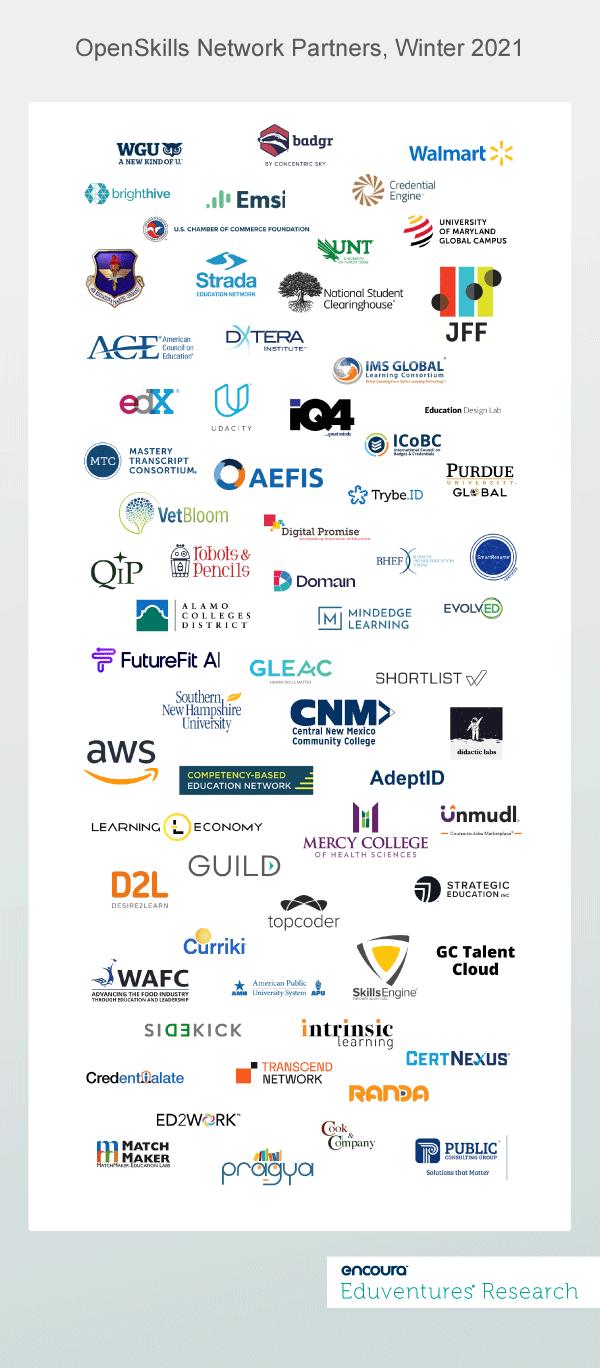With 2020 now complete, expectations are high for a return to pre-pandemic normalcy. As 2021 begins, we’re hearing a familiar trope: an equitable economic recovery can be strengthened by prioritizing “skills-based learning” rather than traditional credential attainment, particularly at schools serving adults with limited postsecondary experiences.
In 2020, community college and adult undergraduate enrollment slumped. The acute economic dislocation and uncertainty wrought by the pandemic gave Americans with little or no postsecondary educations one more reason to question the time and money required to get a degree.
Has the time for skills-based learning arrived, and should colleges and universities be excited or worried?
A skills-based approach to postsecondary learning is hardly new. Career and Technical Education (CTE) is an established postsecondary sector, bridging high schools, community colleges, and the workplace. There’s a clear crosswalk between CTE and skills-based learning. Employers across a broad range of occupations demand measurable evidence of industry-specific skills, in many cases tied to licensure.
Beyond CTE, higher education has an ambivalent relationship with "skills": from embracement among licensure-oriented fields such as nursing and social work, to outright skepticism from faculty in numerous disciplines who regard "skills" as inappropriate vocationalization of timeless capabilities that transcend job-specific needs.
At the same time, there is no shortage of student complaints about overly abstract courses and limited career services, and no dearth of employers dissatisfied with the job-readiness of graduates.
Skills-based learning efforts in higher education tend to coalesce around the following objectives:
- Curricula organized around precise, workplace-focused outcomes, explicitly tied to employer needs and hiring trends
- Learning experiences that emphasize the practice and mastery of skills rather than accumulation of credentials, and complementary workplace hiring practices
- Use of a transparent and transferable taxonomies of skills performance metrics, derived from real-time labor market data
- Career services designed to eliminate ambiguity and chance in hiring practices
- Firm embrace of the “learn-earn-learn cycle” – continuous and affordable opportunities to return to a classroom without risking unemployment
:
1. The OpenSkills Network: A Data Model For Up/Reskilling
The nonprofit OpenSkills Network (OSN) has initial funding from the Walmart Foundation and organizational support from Western Governors University (WGU). OSN is an attempt to organize an array of institutions, non-profit advocacy groups and technology providers into a national effort to build and disseminate repositories of high-demand skills. The current OSN roster includes two- and four-year schools, the military, Emsi, technology start-ups, Learning Management System (LMS) providers, MOOCs, and philanthropic organizations.

According to OSN, as the variety of workplace skills has grown, program outcomes at postsecondary institutions have diverged from the hiring expectations of employers. The coalition argues that the lack of consistency between program and course-level outcomes and job descriptions aggravate equity and access issues, particularly for working adults with limited postsecondary or workplace experiences. From OSN’s perch, colleges and universities have too often failed to instruct students in the actual skills needed to acquire a new job or climb the workplace ladder. At the same time, employers often use vague and generalized statements in hiring requirements and use degrees as a convenient but rudimentary applicant filter.
At the core of OSN’s solution are the Rich Skills Descriptors (RSD). A WGU innovation, RSDs utilize a machine-readable, searchable, and open data model designed to eliminate ambiguity between employer requirements and program or course-level curricula and learning objectives. WGU has endorsed the use of this standard by OSN, which includes, among others, several large national competitors. This is a recognition that a national skills model depends on cross-school collaboration and common standards.
OSN currently has an open call for pilots (UPDATE: call is now closed). Applicants might be colleges or universities seeking to map curriculum to RSDs, or companies keen to codify in-house training in line with emerging national standards.
2. The SkillUp Coalition: One-Stop Upskilling for Frontline Workers
The SkillUp Coalition (SkillUp) represents a different approach, but one informed by many of the same principles. Created in 2020 by some of the same institutions and technology providers responsible for the OSN, SkillUp is a nonprofit, direct-to-consumer effort designed to address the fallout from COVID-19.
SkillUp is attempting to deploy several of the technologies and workforce hiring services of its founding members to meet the needs of displaced frontline workers. SkillUp is positioned as a one-stop-shop to connect these adults with the kinds of resources, knowledge-base and access to postsecondary opportunities they might normally obtain through an employer or local workforce board, or a college. SkillUp is betting that these access points have become less reliable, or in some cases unavailable, due to the pandemic.
The SkillUp experience is self-service. The site invites adults to complete a quick form detailing zip codes and current or most recent jobs, and then answer some questions about broad role preferences and settings. The system then suggests some relevant in-demand occupations, notes the number of open positions locally, and lists various training options. These tend to be 1-3 month, fully online programs from colleges, MOOCs, training firms (e.g., LinkedIn Learning) or bootcamp providers.
SkillUp relies on federal occupational taxonomies and projections to make its job recommendations. The lists of proposed training programs appear to be simply keyword-matched. The SkillUp site also acts as a job portal.
The Bottom Line
Some might say that OSN is trying to reduce the complexity of higher education to neat sets of skills descriptors, overlooking the impossible to codify student effort, integration, and action, not to mention interpersonal relationships, inherent to the learning process. But this is too simplistic.
Schools like WGU know this tension well: WGU is defined by student-mentor interaction as well as self-paced online courses. OSN is better understood as striving to separate what should be more standardized (e.g., skills descriptors for the "same" courses across schools and jobs) versus what is essentially personal, social, or idiosyncratic.
Where to draw this line is the fundamental question. From the school perspective, do cross-institutional skills descriptors boost efficiency and quality or deprive faculty of agency and institutions of compelling points of distinction? The idea that the United States, decentralized country par excellence, could agree on common skills descriptors across programs and jobs at truly national scale is a stretch from an historical perspective, however worthwhile.
SkillUp attempts to tackle postsecondary nonconsumption. The Eduventures Adult Prospect Survey™ has shown consistent underrepresentation among prospective students of Americans with no more than a high school diploma, a gap that has widened during the pandemic. The coalition thinks that short, often self-paced online courses will meet a need that conventional higher education offerings do not. Expect familiar tensions between the benefits of low cost and convenience on the one hand, and risk of low engagement, high attrition on the other.
A one-stop shop of career orientation, training, and job matching resonates for adult learners in a tough economy. By contrast, colleges and universities may resemble a lone piece in a larger puzzle. Breaking long, expensive degrees into short, inexpensive courses and programs may help widen access but—like OSN—SkillUp may work best as the self service portion of an otherwise interpersonal support system.
Open Skills Network and SkillUp speak to the need for a more consistent and integrated education and employment structure in the United States. Colleges and universities should support such initiatives, but also continue to exemplify educational excellence that is fundamental but cannot be entered into a database.
Never Miss Your Wake-Up Call
Learn more about our team of expert research analysts here.
Eduventures Principal Analyst at Encoura
Contact
This recruitment cycle challenged the creativity of enrollment teams as they were forced to recreate the entire enrollment experience online. The challenge for this spring will be getting proximate to admitted students by replicating new-found practices to increase yield through the summer’s extended enrollment cycle.
By participating in the Eduventures Admitted Student Research, your office will gain actionable insights on:
- Nationwide benchmarks for yield outcomes
- Changes in the decision-making behaviors of incoming freshmen that impact recruiting
- Gaps between how your institution was perceived and your actual institution identity
- Regional and national competitive shifts in the wake of the post-COVID-19 environment
- Competitiveness of your updated financial aid model

